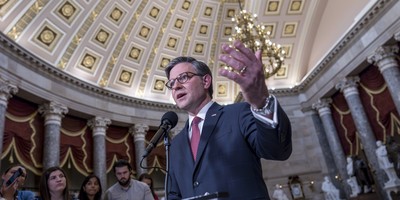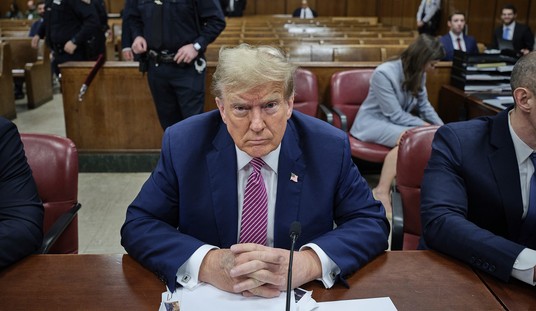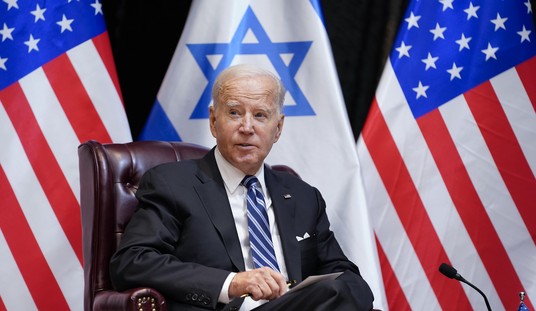On March 14, the Romney campaign's political director, Rich Beeson, sent out a message touting Mitt Romney's recent delegate pickups. Yes, Rick Santorum had won Alabama, Mississippi and Kansas, Beeson said, but "Governor Romney's wins over the same period in Wyoming, the Northern Marianas, Guam, the U.S. Virgin Islands, Hawaii and American Samoa have helped expand his delegate lead, pushing him closer to the nomination."
Indeed, in early March it was Romney's wins in the island territories -- Marianas, Guam, Samoa, Virgin Islands -- that gave Romney the edge in delegates. And then, on March 18, Romney won the primary in Puerto Rico. It's possible that if Romney finally reaches the 1,144 delegates needed to clinch the Republican nomination, his delegate margin of victory will have come from the islands.
Which leads to the question: Why are places that are not states, whose residents cannot vote for president, and that have no electoral votes allowed to play a potentially critical role in selecting the party's nominee?
"I have no idea at all," says a former Republican National Committee official.
"I don't know," says a current RNC official.
It's not just a Republican thing; the Democratic Party also awards delegates to the islands. And usually a presidential candidate wins by such a large delegate margin that the islands don't make any difference. But maybe not this time.
It's not that the islands, or at least most of them, are so big that their voices simply must be heard. From an Associated Press account of the March 13 caucuses in American Samoa: "About 70 Republicans in the U.S. territory located 2,300 miles south of Hawaii met in caucus Tuesday. The six delegates selected at the meeting and three superdelegates to the Republican National Convention all said they would support Romney."
Recommended
Just by themselves, those nine delegates, selected by a grand total of 70 participating Republicans, accounted for Romney's entire delegate lead over Santorum in the March 13 contests.
In the Virgin Islands, it appears Ron Paul actually edged Romney, 112 votes to 101 votes, but because of complex rules of delegate allocation, Romney walked away with seven delegates to Paul's one.
In Guam, Romney picked up nine delegates when he won unanimously, with a total of 215 votes.
The big prize, at least in the number of votes, was the Northern Marianas, where Romney won another nine delegates on the strength of 740 votes. "The Northern Mariana Islands may be far away from the mainland, but one of the great things about our democracy is that every voice has a chance to be heard in selecting a presidential candidate," Romney said in a victory statement.
If those results trouble any Republicans, they shouldn't blame Romney. He's just playing by the party rules. And playing smart, sending Romney's son Matt to campaign in the Northern Marianas and in Guam just before the caucuses. The 18-0 delegate pickup in those two places alone eclipsed Romney's delegate margin of victory in Michigan and Ohio combined, where more than 2 million votes were cast.
Should the non-voting islands have such power?
"There really is no purpose to it," says David Norcross, former general counsel and chairman of the RNC rules committee. "There is no, in my mind, particularly compelling argument for it."
With the exception of American Samoa, people born in the islands are U.S. citizens. But the Constitution gives none of these non-states the right to choose a president. Their situation is comparable to that of the District of Columbia, whose residents could not vote for president before 1964. It took the 23rd Amendment to change that; no such amendments are in the offing for the island territories.
Delegates in the GOP presidential race, however, are controlled by the Republican National Committee. "The residents of the islands are U.S. citizens who are active and engaged members of the RNC," a committee spokesman says, "and part of the primary process that will produce the next president of the United States."
The RNC's statement doesn't explain why the policy is what it is, but of course there are political reasons. For example, there's no doubt the Puerto Rico primary was closely watched by Puerto Ricans in the United States -- in places like the I-4 corridor in the critical swing state of Florida, which Republicans need to win in November. Island delegates have also played key roles in electing RNC leadership; recent chairman Michael Steele owed his victory to island support.
But the presidency? It could be that by the end of this primary season, places like the Marianas and Samoa will be key factors in choosing the next resident of the White House.
(Byron York is chief political correspondent for The Washington Examiner.)

























Join the conversation as a VIP Member